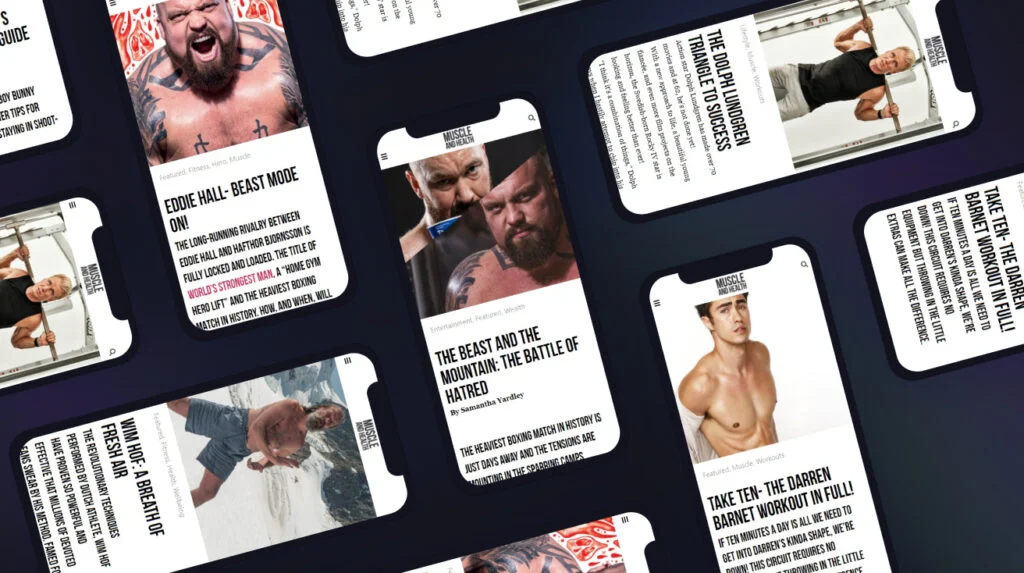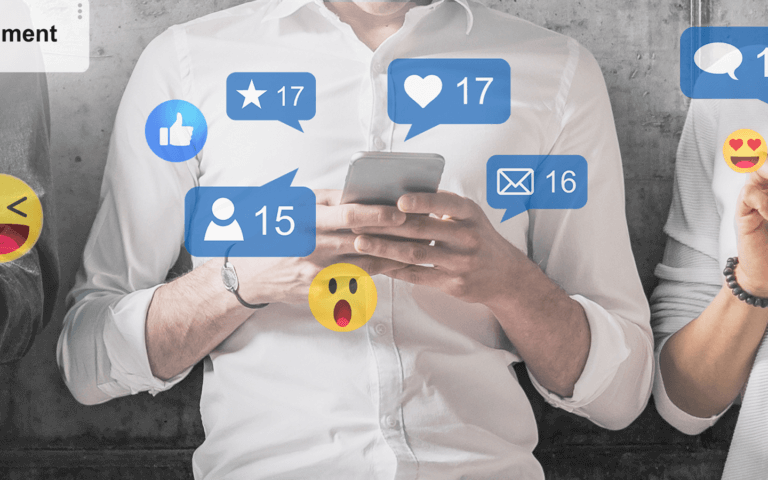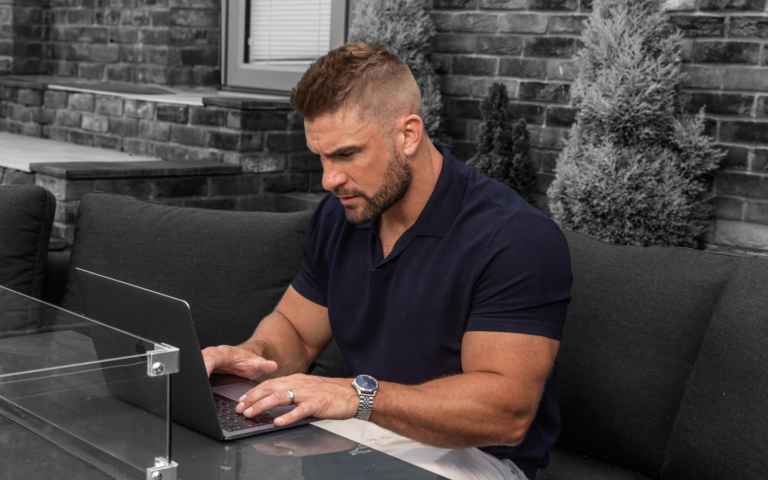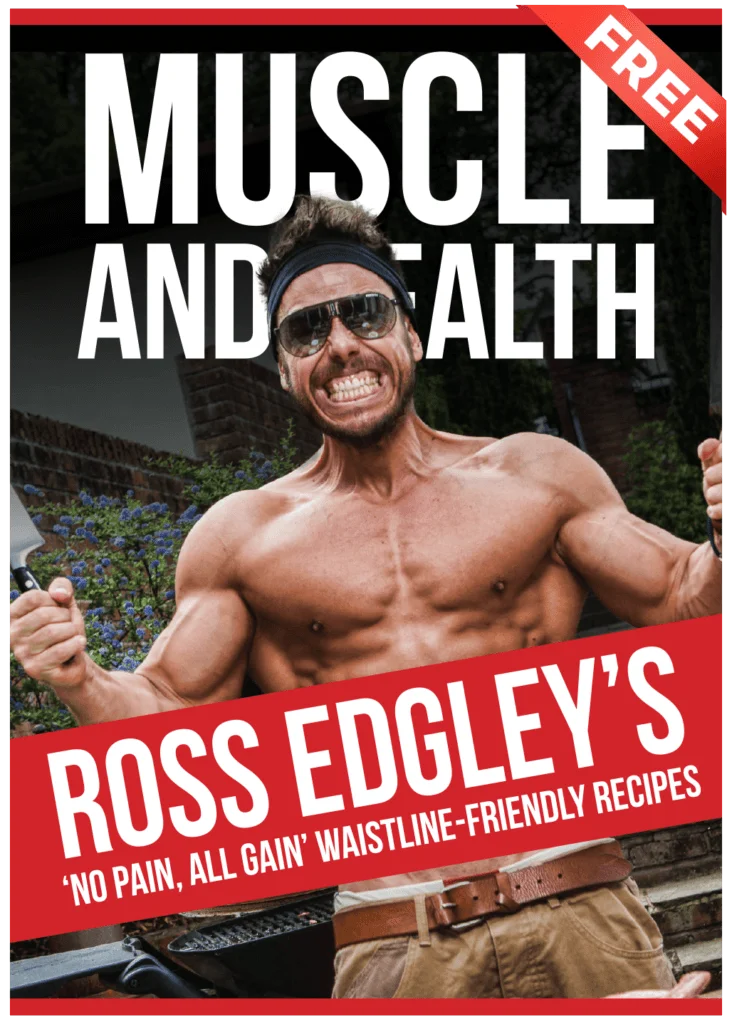Charley Boorman and best mate Ewan McGregor first took to the road in 2004, fuelling our appetites for adventure as they rode 19,000 miles from London to NYC on BMW R1150GS motorcycles. Despite their obstacles and injuries, ‘Long Way Round’ was a huge hit, so a long-term penchant for unforgettable motorcycle journeys was born.
“It’s taken me quite a long time to get here, but I do love it, and I have to kick myself sometimes,” says Charley Boorman. I attempt to do a quick headcount of the motorcycle helmets lined up behind him as we sit down for a morning Zoom chat.
“I think I got my adventure from my father. He made films like Deliverance, Point Blank, and many big movies. They were always very difficult and adventurous productions. He was always traveling worldwide, so as children, we followed him because we had no choice, and then we were thrown into his movies because he’d say, ‘don’t pay for child actors. I’ve got four children, and they can do it for free. So we were always thrown into his movies. I think my first role was at five or six years old. I played Jon Voight’s son in Deliverance right at the movie’s end. My father said, ‘look, if you sit on that sofa with that bloke, I’ll give you a tricycle.’ It sounds pretty dodgy, but I wanted the tricycle. It was always in really difficult locations and places too.
“Ewan and I met on a movie set and then started traveling together. It was slightly accidental traveling; I don’t think we ever intended to go around the world on the first trip. The whole idea just grew, and by that time, we’d convinced too many people we were doing it, and then we had to do it, especially when you get the money as well. I couldn’t afford to do it at the time. I was painting and decorating and doing people’s houses, and I was strapped. And so we managed to get a book deal, and you sell any old bullshit to sell the idea and get the money. Any business does that. You go to the bank or an investor, a radio or TV station or a magazine to get the funding. Then you have to make it happen.”
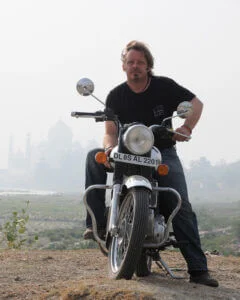
Regardless of the apparent extremities they’ve battled, Charley and Ewan have been subject to critique from viewers who claim they should not have a support team traveling with them.
“We have Claudio, our cameraman, following us around on another bike and a couple of cars that follow loosely behind us,” says Charley Boorman. “If you want to make a decent TV show, you need that. But filming aside, it’s all about having fun and meeting amazing people and visiting unique places. You can create lifetime memories, whether alone, with a friend, or with your sons or daughters.
“A guy contacted me after watching one of my shows. He was very sick at the time and waiting for a transplant. He told me he’d promised his son they’d go on an adventure together if it all worked out. He contacted me sometime later to tell me he’d pulled through and gone on that trip with his son and that his wife and daughters didn’t want to miss out, so they followed in a Jeep. The four of them had this incredible adventure together, and it shows it doesn’t matter how you do it as long as you do it.”
As part of their mission to spread cheer, Charley and Ewan partnered with UNICEF to give back something to the global communities who welcomed them with such open arms.
“Ewan and I chose UNICEF because we were leaving our kids behind and missing them terribly, so the idea was to help kids along the way,” says Charley Boorman.
“We met Ewan’s adopted daughter Jamyan when we were in Mongolia. We all fell in love with her, Ewan in particular, so he adopted her. Jamyan even came along on the trip a bit this time, which was terrific. She’s such a wonderful girl and my godchild. I’ve known her since Mongolia. Not all the kids we meet are as lucky as Jamyan, though, and it’s always hard to say goodbye. In Guatemala, so many kids had been sucked into gangs. They slowly reel them in, and then the kids suddenly realize they’re drug trafficking or sex trafficking at a young age. They shot one girl’s mother in front of her and threatened to shoot the rest of her family if she didn’t carry on. The problem is so real, and sometimes you wonder how on earth you can help people like that.

“Ewan and I chose UNICEF because we were leaving our kids behind and missing them terribly, so the idea was to help kids along the way.”
“UNICEF creates these safe places for kids to play and be children without being groomed into becoming gang members. They clean up the entire community so the kids can play on the streets and have a better life, and the gangs eventually go somewhere else. By highlighting what UNICEF does, you can walk away assured people are helping, and you’ve helped them by spotlighting it.
“Both Ewan and I always say the bike ride is important, but it’s about everything you do in between and the people you meet. Charity work helps us meet some extraordinary people doing extraordinary things. To see people doing these things is fascinating; it’s wonderful.”
“Charity work helps us meet some extraordinary people doing extraordinary things. To see people doing these things is fascinating; it’s wonderful.”
While never short of humor, the lad’s extreme excursions have given rise to many unfortunate events.
“I will never forget Mongolia,” says Charley Boorman. “Suddenly, before we knew it, Ewan and I were sitting in the middle of nowhere in Mongolia. One of the support vehicles a day or so behind us had just crashed, and we were looking around, thinking, ‘what the fuck are we doing? Whose idea was this?’ And then we realized it was our idea, so we couldn’t exactly blame anyone for being there except ourselves.
“I think at that point, we were close to leaving Mongolia because everything went wrong from the moment we entered the country. It was tough. There are no roads, no signposts, and no shops, it was very difficult to find food. I mean it was really, really not what we were expecting.
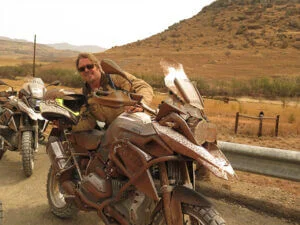
“Deep down inside you, I think there’s a real panic thinking, ‘shit, this is bad’, but I think both Ewan and I hypothetically slapped each other in the face and got our shit together and carried on, and it turned out to be one of the most touching places we ever visited and the most extraordinary place to travel. We met some incredibly kind people.
“When you take your driving test in Mongolia, you have to be able to prove that you can fix your vehicle. Every driver has to prove they can fix a car or a motorbike before being given a license. It doesn’t matter who it is. It’s so remote that you must be able to show you can fix your vehicle. Otherwise, you could be in terrible trouble. That’s where the locals came in…
“When you take your driving test in Mongolia, you have to be able to prove that you can fix your vehicle. Every driver has to prove they can fix a car or a motorbike before being given a license.”
“I’ll never forget Claudio’s bike had broken down, and we were sitting on the side of the road. The second the first vehicle came by it stopped, and I’d never seen so many people get out of a tiny car all my life! Twenty-odd people were in this little two-door pickup truck; it was extraordinary. Everybody sat down to help, regardless of who we were, and I think that was one of the most amazing places. We’d ridden there from home, which was incredible, and we were heading toward New York. That was one of the highlights, I think. There’s always a specific part of every trip that stands out. You usually remember the tricky bit the most- the breakdowns, falling off the bike, or the difficulty in a specific place.
“When we were in Papua New Guinea, they had these big machetes and started demanding money! I ended up having a huge argument with this guy and telling him I’d have given him money if he’d fixed the road, but he hadn’t, so I refused. We walked away laughing from that experience and saying, ‘wow, we got away with that, but it could’ve gone either way’. Those are the parts you remember.”
Charley Boorman’s exploitative nature never sleeps, even when he’s not with his best pal Ewan. His show ‘By Any Means’ hit screens in 2008 and documented Charley’s journey from Wicklow, Ireland, to Sydney, New South Wales, using 112 modes. These included an elephant and a mere 12-foot boat to cross the English Channel.
“I sat down with the production team before we started ‘By Any Means’ to discuss getting from A to B without using a plane,” he says. “We worked out how we wanted it to go, but sometimes a particular mode of transport didn’t work, so we had to find something else. On occasions, like when they closed China’s borders, we had to use a plane because of political change. It’s all part of the fun, having to change things at the last minute. It seemed as if we were always getting arrested. We got this helicopter to fly us up to basecamp for Everest, and we told the pilot we couldn’t cross over to China to carry on our journey and were now stuck in the Himalayas. We were flying past the border we were going to cross, and he said, ‘don’t worry, I’ll hover over there so we can film it,’ Without knowing, he drifted over into their air space! All these Chinese soldiers were looking up with binoculars thinking, ‘what the hell is this helicopter doing?’ and they had guns and everything. That evening we discovered the Chinese had reported the helicopter pilot!
“Arrests aside, the most unfavorable mode of transport was probably the elephants- they’re very uncomfortable and can suddenly decide to grab a tree and start eating it! They’re so bouncy. There were some easier and speedier elements to the journey, though. We were on these super-fast speedy river boats in Vietnam or Cambodia with car engines- they were fast and incredibly fun.”
Most recently, Charley and Ewan took to the road on electric bikes, traveling from Argentina to Los Angeles in ‘Long Way Up.’ The trip spanned thirteen countries over 13,000 miles and took 100 days.
“We were flying past the border we were going to cross, and he said, ‘don’t worry, I’ll hover over there so we can film it,’ Without knowing, he drifted over into their air space! All these Chinese soldiers were looking up with binoculars thinking, ‘what the hell is this helicopter doing?’”
“At first, for sure, it was a very different experience going electric,” says Charley Boorman.
“But what Harley did to make incredibly capable adventure bikes for us that handled incredibly well made them super-fun. They could do 0-60 in three seconds which is pretty quick. They had an amazing amount of performance. With petrol and diesel cars they try to make them as quiet as possible, so there’s minimal sound from the engine and then when people talk about electricity they say, ‘there’s no noise’, when they’ve spent the whole time trying to make cars (apart from sports cars) as quiet as possible. Once you’ve ridden an electric bike for a couple of days, you don’t miss the noise. You do get a whirring noise, though.
“It’s difficult when you switch to an electric bike, and the world is still very confused over electric vehicles. I do a lot of stuff with electric now and a lot of pedal-assist e-biking. I was cycling with this guy a while ago, and he’d only just gotten his bike. He spent the whole ride watching the percentage of his battery. He was completely obsessed with it. It’s what they call ‘range anxiety syndrome.’ It’s a thing. Until you’ve ridden or driven an electric vehicle for a couple of months and realized there are charging stations everywhere and you don’t need to worry, you’ll have those fears. When Ewan and I did ‘Long Way Up,’ we had those fears too. There was a lot of negativity from people saying they didn’t think we’d make it and we’d only get a 70-mile range, but when we went to Harley Davidson, they assured us we’d get a 150-mile range per day, which was a lot less than a petrol bike but still very durable. When we got down there with these prototype bikes and electric cars, we suddenly realized we’d organized this thing to do 13,000 miles across thirteen countries. Ewan and I had only ridden the bikes for about 45 minutes! We’d never charged them, we didn’t know how to charge them, and for the whole of South and Central America, there were no fast chargers, so it was all going to be a case of plugging into people’s houses. To fill up the bike that way takes a minimum of eleven hours. There were a few issues.

“One time, we stopped by this bunch of llamas at the side of the road, and because we weren’t making any noise, they just stood there staring at us. They’ve got very pretty eyes llamas! It made us far more approachable not having the engines.
“When petrol cars first came out, people had range anxiety syndrome in those days too. You could only buy petrol in a pharmacy, fill your car up in your house, and then worry about getting from A to B and finding more petrol. Now there are petrol stations everywhere, and the same thing will happen with electricity. I’ve got a charger in my home. If you plug it straight into the mains, you can charge your car in two-and-a-half hours. Or you can plug it in overnight. I have an electric car at home and an electric bike, the LiveWire Harley created. You can get 150-mile range or more in an urban environment, so I only fill it up once a week, and it costs £2.50 to fill it up from home.”
“The electric car I have, I only fill it once every ten days because it’ll do a couple of hundred miles. It costs just £6 a week to charge.”
Charley Boorman believes change is coming for the greater good, whether we want it or not.
“People are afraid of change because they don’t understand it,” he says. “Regardless of whether you want electric or not, it’s coming. During the first lockdown, I used to cycle around London. There were no cars or planes, and the air quality completely changed. Everything changed. I remember thinking, ‘if it were mostly electric in cities, that wouldn’t be such a bad thing’. I haven’t bought a high-performance car for years because there are so many cameras and giving it a good blast is impossible.
Despite having one leg shorter than the other, Charley Boorman has no plans to stop riding anytime soon.
“Four years ago I had a huge crash and could’ve lost my leg,” he says. “I can’t run anymore, and I find it harder to climb mountains. It has changed things. After the accident, I was lying in the hospital thinking, ‘this is shit,’ and feeling sorry for myself. I was sharing a room with another patient, and I looked over, and he was worse off than me. I remember thinking, ‘actually, I think I got away with it’. The surgeon said to me, ‘you’ve broken some bones. I’m just a carpenter I’ve put them back together, but the rest is up to you. Nothing changed what happened, so I knew I might as well crack on.
“My left leg is still an inch shorter than my right. I can see my shoulders are wonky in the mirror every morning. Everything is thrown out. My right ankle is always painful, but there’s not much I can do about it. It’s always the last thing I think about before I go to bed, and the same goes for when I wake up stiff and in pain- it’s always there.
“These things happen, and you have to accept them. I’ve always ridden motorbikes. When you ride off-road, you’re always going to expect injuries. Ask anyone who rides horses, and they’ll tell you the same thing. They must all be as stupid as I am because they keep getting back at them!
“I’m thinking about doing another ‘By Any Means’ quite soon. When you reach the end of these big trips, a big part of you wants to get home and see friends and family, but another part doesn’t want to give it up. You start talking about the next trip to make stopping and going home easier. Ewan and I always discussed doing ‘Long Way Down Under’ or ‘Long Way Scandinavia’. Having something to look forward to makes stopping easier because you know there’s another adventure in the pipeline.
“For the next ‘By Any Means’, I’d like to keep it slightly closer to home. I think more electricity, and I’ll travel by anything. It’ll be interesting to see how things have changed because it was a few years ago we did the last show. If my kids were interested, I’d love for them to come too.
“Ewan and I may act on the ‘Long Way Down Under’ idea. It’s always about trying to convince someone to give us the money to go and do it! It’s never easy. It’s all good fun. If you’re lucky enough to find something you like doing
and then make something out of it that’s great.
“Maybe we can convince NASA to build us bikes for a space excursion and send Ewan and me to the moon to be the first two adventure riders to ride around the moon. ‘Long Way to The Moon’. Maybe I should approach Elon Musk. He’s always up for a challenge. We’ll have an electric rocket and then an electric motorbike to go around the moon- all paid for by Bitcoin!”


